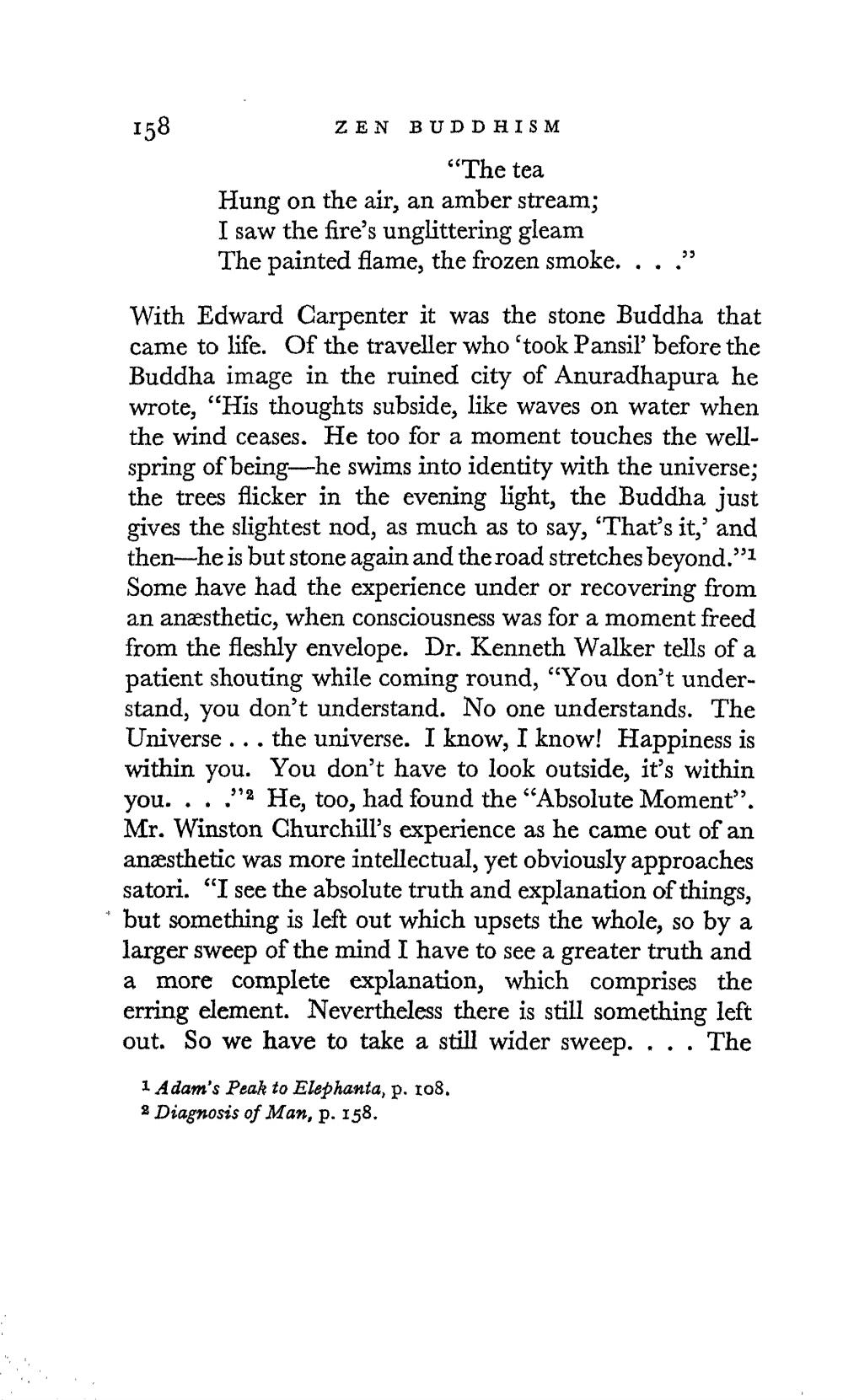________________
158
ZEN BUDDHISM
"The tea Hung on the air, an amber stream; I saw the fire's unglittering gleam The painted flame, the frozen smoke. ..."
With Edward Carpenter it was the stone Buddha that came to life. Of the traveller who 'took Pansil' before the Buddha image in the ruined city of Anuradhapura he wrote, “His thoughts subside, like waves on water when the wind ceases. He too for a moment touches the wellspring of being—he swims into identity with the universe; the trees flicker in the evening light, the Buddha just gives the slightest nod, as much as to say, 'That's it,' and then-he is but stone again and the road stretches beyond."1 Some have had the experience under or recovering from an anæsthetic, when consciousness was for a moment freed from the fleshly envelope. Dr. Kenneth Walker tells of a patient shouting while coming round, "You don't understand, you don't understand. No one understands. The Universe ... the universe. I know, I know! Happiness is within you. You don't have to look outside, it's within you. ..."2 He, too, had found the "Absolute Moment". Mr. Winston Churchill's experience as he came out of an anæsthetic was more intellectual, yet obviously approaches satori. "I see the absolute truth and explanation of things, but something is left out which upsets the whole, so by a larger sweep of the mind I have to see a greater truth and a more complete explanation, which comprises the erring element. Nevertheless there is still something left out. So we have to take a still wider sweep. . . . The
1 Adam's Peak to Elephanta, p. 108. 2 Diagnosis of Man, p. 158.




